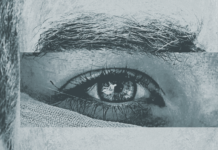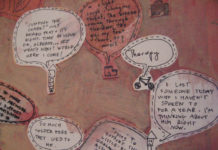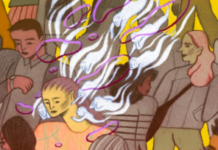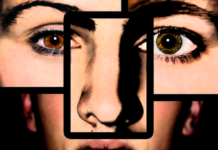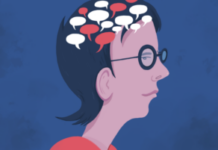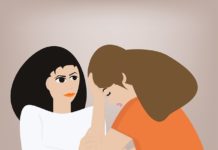Massachusetts Launches New Strengths-Based Early Psychosis Program
ServiceNet, a mental health and human service agency in western Massachusetts, received a three year, two million dollar grant to launch a program designed to support young adults who have recently experienced their first episode of psychosis. The Prevention and Recovery Early Psychosis (PREP) program is funded by the Massachusetts department of mental health and is designed to treat psychosis as a symptom, not an illness, resulting from other illnesses, substance abuse, trauma, or extreme stress.
Emotional Intelligence Needs a Rewrite
From Nautilus: The traditional notion of emotional intelligence is based on two assumptions: that it is possible to detect others' emotions accurately, and that emotions...
Flexible Treatment Planning Improves Depression Outcomes in Youth
Researchers explore the effects of augmented treatment at various points in interpersonal psychotherapy for adolescents diagnosed with depression, highlighting previously unidentified critical decision points (i.e., relatively early in the treatment sequence).
Victims of Success: An Update from Mad in America Continuing Education
Within days of announcing the webinar and providing the link to register, we were deluged with enrollments. It turns out that a great many professionals, advocates and clinical managers are interested in learning about Open Dialogue and its application to an American community.
Psychics Who Hear Voices Could Be on to Something
In this piece for The Atlantic, Joseph Frankel compares and contrasts the voice-hearing experiences of self-described psychics and mediums with the experiences of people diagnosed with...
Finding Clarity Through Clutter
For the last three years, I have been working with people, labeled "hoarders," who have become overwhelmed by their possessions in their homes. This has been some of the most interesting, challenging and thought-provoking work I have ever done. It is also an area that, I think, highlights all of the issues that challenge us in helping people who feel overwhelmed, for whatever reason.
A Conversation about Having Conversations about Psychiatry
In spite of constantly increasing opportunities to tell different stories to the canonical story of bio-psychiatry, it can be risky for academics to voice a different perspective than the mainstream model of mental illness. In this conversation, a communication professor and a psychology professor discuss their challenges and personal experiences with going against the grain, such as what it means to be labeled “anti-psychiatry” by colleagues and responding to students upset to learn their medications may not be all they thought they were.
Tom Arnkil on “Unconditional Respect for the ‘Otherness’ of Other People”
Tom Arnkil on the book he co-authored with Jaakko Seikkula, and the necessity for the "Unconditional Respect for the 'Otherness' of Other People."
Doing It Alone Together: Core Issues In Dutch Self-Managed Residential Programs
For the last six years we, a group of researchers, social work students, peer experts, and social professionals associated with the Amsterdam University for Applied Sciences, have been studying and facilitating the development of self-managed programs in homelessness and mental health care in the Netherlands. With our research we want to contribute to the development of new and existing programs through critical reflection. With this blog, I hope to share some of our findings, to give back to the respites from which we learned so much.
Schizophrenia’s Tangled Roots
From Sapiens: Researchers are increasingly recognizing the role that social and environmental factors, including childhood abuse, stressful events, and poverty, play in the development of...
The Alternative to Drugs: The Real Treatment for Human Suffering
My opposition to psychiatric drugs is not just that they are harmful, dangerous, and destructive. That would be plenty motivation enough. And it is. But in addition, my profession, which I love and value, has been hijacked by the APA and Big Pharma. It is my goal to return psychiatry to its proper place - where good psychotherapy is understood to be the treatment for human suffering.
What Transgender Actors can Teach Medical Residents
A new training program teaches medical residents how to provide appropriate care and services to transgender clients.
Do Voice Hearers Have the Right to Refuse Psychiatric Drugs?
In this piece for STAT, Shirley S. Wang discusses the Hearing Voices Network and its non-pathologizing, rights-affirming approach to hearing voices and alternative realities.
"Many recovered...
Therapeutic Alliance: Implications for Practice and Policy
In this piece for Psychiatric Services, Dr. Sandra Steingard comments on the implications of a recent meta-analysis demonstrating the positive effects of the therapeutic alliance on pharmacologic...
Storytelling Therapy for Trauma and Bullying
A study out of the University of Buffalo explores the use of Narrative Exposure Therapy to treat youth PTSD and substance abuse. “Trauma is...
Why Some Children with Depressed Parents Show Resilience
Children of parents who suffer from depression have a severely heightened risk of mental health problems, but new research points to several factors that seem to strengthen young peoples’ resilience and predict good mental health.
Using Participatory Action in Bioethics Research
Participatory action approaches in bioethics research used to decrease coercion and seclusion in psychiatric treatment.
Not Everyone Wants to Silence the Voices in Their Heads
From Science of Us: There seems to be a growing interest in the concept of healthy voice-hearing. The idea that hearing voices may not be...
Mindfulness Therapy May Be More Effective Without Antidepressants
While an estimated 74-percent of patients diagnosed with major depression receive a prescription for an antidepressant, new research reveals that mindfulness-based cognitive therapy (MBCT)...
“Psychiatry’s Mind-Brain Problem”
A New York Times Op-Ed by Cornell psychiatry professor George Makari connects the surprise over the results of the widely-covered RAISE study to American psychiatry’s shift toward pharmacology and the oversimplification of disorders as brain diseases.
Group Mindfulness Shows Promise Reducing Depression Associated with Hearing Voices
A new study out of Kings College London found that twelve sessions of a group mindfulness-based therapy relieved distress associated with hearing voices while reducing depression over the long-term. The person-based cognitive therapy (PBCT) intervention had significant effects on depression, voice distress, voice controllability and overall recovery.
Lack of Face-to-Face Contact Doubles Depression Risk for Older Adults
New research suggests that more frequent in-person contact lessens the risk of depression in older adults. The study, published in this month’s issue of the Journal of the American Geriatric Society, found that in Americans over fifty the more face-to-face contact they had with children, family and friends, the less likely they were to develop depressive symptoms.
Mad Economy: Let’s Change the World!
Everyone in the world is either touched by their own mental health issues or have had a family member affected. What if they directed their buying power to an organization that would use the profits to fund exciting mental health & recovery projects both in the developing world and in their own countries; projects that would be ethical, non-coercive, personal recovery-based, and were aimed at creating recovery communities? What if they could buy products, crafts, services, art, music, books from people who had experienced mental health issues, enabling them to set up their own businesses or buy from social co-operatives that enabled distressed people to work and earn a living wage?
Psychologist Rethinks Psychotropic Medications, Calls for Renewed Dialogue
Psychologist and Professor Amber Gum has published the story of her personal journey of rethinking psychotropic medication in a special issue on "The Politics of Mental Health" in The Journal of Medicine and the Person. Influenced by Mad in America and the work of Robert Whitaker, Gum became aware of evidence that “suggests that psychotropic medications are less effective and more harmful than most believe” and now hopes to encourage other mental health professionals and researchers to engage in open-minded, critical self-assessment of standard practices.
Anyone Can Be Trained to Hallucinate
From Flipboard: In a recent study on auditory hallucinations, all participants — not just those who had been diagnosed with psychosis — experienced conditioned hallucinations. The study...


